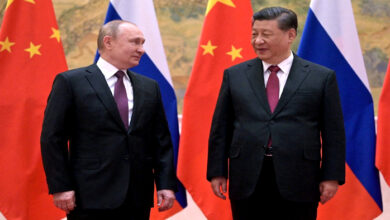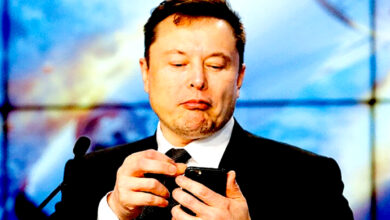Tesla Scores Big in India Amidst Rising Tensions Between Indian Government and Chinese Carmakers

It seems the sun is shining on Elon Musk as China faces a rocky path in India.
Tesla has received a warm and inviting response from India to its plan of investing in the country. Meanwhile, China’s BYD, Tesla’s major rival in the electric vehicle industry, is hitting some hard roadblocks as it faces increased examination from the Indian government.
This could present Tesla with a golden chance to set the terms for its grand entrance into the world’s third-biggest auto market. That’s without the usual pressure it faces from BYD in other budding markets like Thailand.
“As goes India, so may go the worldwide EV race,” opined Jasmeet Khurana of the World Economic Forum.
Ever since a meeting between Musk and Indian Prime Minister Narendra Modi in New York this June, Tesla has been rushing through secret negotiations with Indian officials. These discussions revolve around a potential plant investment and a brand new, wallet-friendly $24,000 EV.
Week after week, these talks have been progressing, focusing on the finer details of Tesla’s plans to tap into India’s rapidly growing EV market. Prime Minister Modi himself has been keeping an eagle eye on the developments, as per inside sources.
However, these discussions have been hush-hush, with no images of official handshakes finding their way to social media, which is usually the norm after such high-level meetings.
In the meantime, BYD seems to have moved to the slow lane. The company, after having initially sought approval for its own $1 billion investment in India, seems to have lost interest in getting the green light, as per a Reuters report. To add to its woes, BYD is also under scrutiny for allegations of underpaying import tax in India.
India is on high alert about the potential national security risks posed by Chinese-made vehicles and the data they might collect. An official even commented, “There’s a certain unease with Chinese carmakers.”
Since the 2020 border clash between India and China, all investments from the latter have been under tight watch in India. This could have an amplified effect on the emerging EV market in India, considering China’s stronghold in battery materials, battery production, and other relevant technologies.
Despite having Chinese suppliers that have helped cut down production costs at its Shanghai factory, Tesla wants to bring them to India. It seems like the automaker is holding the aces in its talks with New Delhi.
India has informed Tesla it would welcome its Chinese suppliers if they form alliances with local firms, much like Apple did. However, India seems to be pumping the brakes on BYD’s $1-billion proposal, despite it too being suggested as a partnership with a local engineering firm.
According to The Global Times, a Chinese state-run newspaper, the reported pushback on BYD’s investment proposal “will spark a domino effect, shaking the confidence of Chinese companies looking to invest in India.”
BYD has not commented on its investment plan in India or the import tax allegations. The company mentioned to Reuters that it has been an active player in the Indian market for 16 years and currently sells commercial vehicles and passenger cars there.
Tesla remained tight-lipped about its ongoing discussions with Indian officials. However, Musk did say in June that Modi was “urging us to make significant investments in India, something we fully intend to do.”
INDIA’S GROWING EV MARKET
Tesla’s goal is to globally sell 20 million cars by 2030, up from 1.31 million in 2022. However, it faces a few bumps in the road in terms of expanding its Shanghai factory.
BYD led the world in sales of EVs and plug-in hybrids in 2022, with 1.86 million units sold – primarily in China. It does, however, lag behind Tesla when it comes to fully electric car sales.
“Tesla and BYD are the major players, and both are expanding globally at a neck-breaking speed,” observed Gaurav Vangaal of S&P Global Mobility.
He added, “If they want high volumes, they’ve got to enter India,” stating that with the government incentivising companies to manufacture EVs locally, India could also become a major export hub.
Estimates by S&P Global Mobility suggest that the production of light electric vehicles in India will grow to 1.4 million by 2030, which is nearly 19% of the total predicted production of 7.25 million. This figure was below 50,000 in 2022.
Tata Motors, a local brand, currently rules India’s budding EV market. Its top-selling Nexon EV is priced as high as $19,000. Meanwhile, Chinese carmaker MG Motor’s ZS EV begins at $28,000 and BYD’s Atto 3 is retailing around $41,000 in India.
Toyota, Hyundai, and Kia all sell mid-sized gasoline SUVs priced at around $24,000, which is Tesla’s target entry point.
As of now, Tesla does not sell vehicles in India.
“Tesla has become a coveted brand, based solely on its name,” commented Sam Fiorani of AutoForecast Solutions. “Couple that with an affordable product tailored for the Indian market, and it could potentially be a local sensation.”





